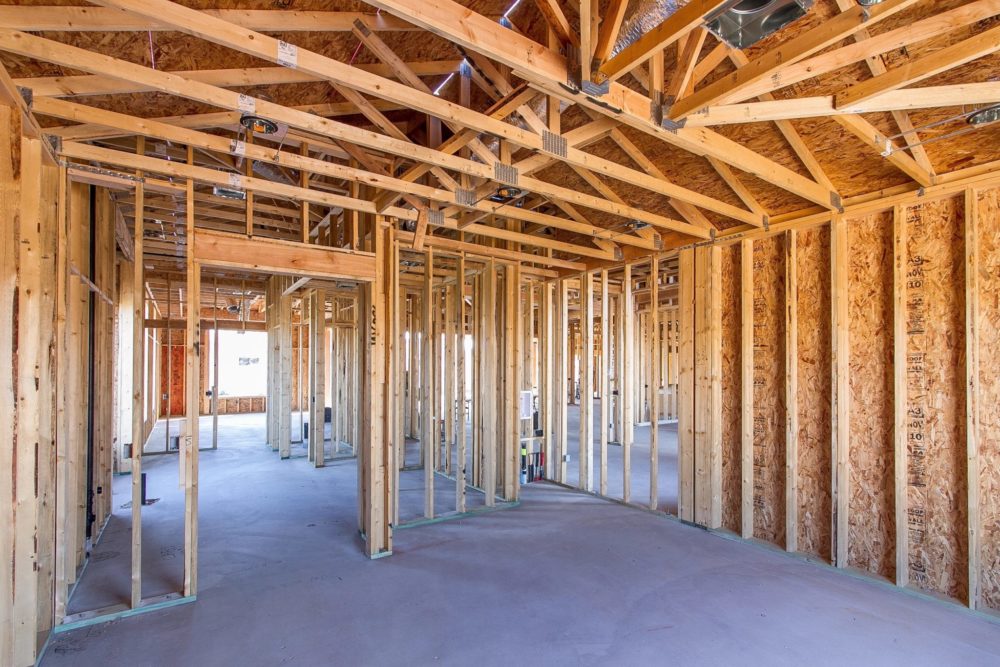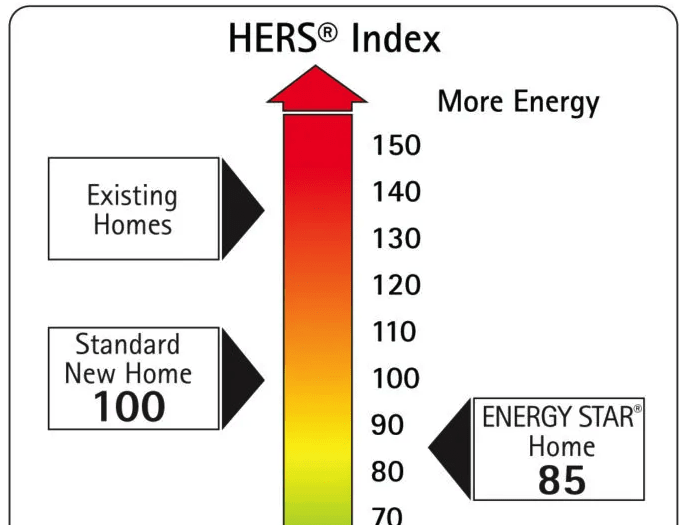|
l
Several weeks ago I got an email from a listener named Deanna asking if I had a list of the questions we should ask a contractor’s references. The answer was no. I hadn’t thought to compile list of questions for references before Deanna’s email. Thanks for that idea Deanna. Now, I’ve repeatedly recommended that you ask your contractors for a list of references. And that applies to general contractors and subcontractors (if you are an owner-builder). We want to talk to their past clients to see what their experience with the contractor was like. But what exactly should we ask those previous clients? As you probably know, a major part of doing our due diligence and vetting (or investigating) a contractor before hiring him or her is to contact some references. Ask the contractors you’re considering for your project for ideally at least 3-4 references. And make sure you actually contact those references! Most people are very willing to help out by chatting about their homes and construction experiences. Tell the contractor that you would like to talk to at least one reference who the contractor worked with recently and at least one reference who he worked with 8-10 years ago, if possible. This will give you some info about the contractor’s current practices and tell you how his work holds up over time. Some people think contacting references is not very helpful because they think the contractor will only give a list of their best customers who may potentially be unwilling to share anything other than the most positive remarks. But you’d be surprised by how honest people will be, especially if the contractor is not in earshot of their comments. Plus, my list of questions will hopefully elicit candid, valuable information. Try to limit questions that can be answered with a simple yes or no. Ask mostly open ended questions that will spark a more detailed answer. I have a list of 30 questions. That’s a lot and you may not want to ask all of them if you and the reference have limited time. And some questions might be appropriate for some contractors and situations and not others. Be sensitive about how talkative and open the reference is. If they seem really chatty and comfortable, ask lots of questions. If not, ask the questions you deem most important. Here is the list of: QUESTIONS YOU SHOULD ASK CONTRACTORS' REFERENCES: 1. What type of work did the contractor do for you? What is the style and size of your house? It’s nice to have a contractor who has experience with houses similar to yours. This is particularly true if you are going to hire a general contractor/builder because he/she is more likely to know subcontractors who can execute the features and details you want. Some (sub)contractors are intimidated to work on houses that are larger, different and/or more detailed than they are used to. 2. When did the contractor work on your project? Remember you want to speak to a recent client and one from at least 8-10 years ago, if possible. 3. On a scale of 1-10, how well did the contractor and his team clean up after themselves? During construction, it’s important that the contractor keep the job site clean and orderly. This is important to set a tone of professionalism and respect on the jobsite. It’s also a matter of safety. Disposing of debris, scraps and trash helps everyone move about the job site freely and decreases trip hazards. Contractors with pride in their craft tend to keep their work environment clean. 4. How open was the contractor to your ideas or new ways of doing things? Or did the contractor seem stuck in his ways? You want a contractor who is willing to learn about and explore new ideas, especially if those new ideas are ones that you want to incorporate into your house. 5. How well and regularly did the contractor communicate with you? How patient was the contractor in answering questions? If someone is working for you, you want them to return your phone calls and emails in a timely manner and explain things clearly and professionally, without getting frustrated. You don’t want to work with someone who gets annoyed by questions. 6. How did the contractor handle problems or the unexpected? When things didn’t go exactly as planned, how did the contractor react? Did he address challenges with poise and confidence or did he become irritable, overwhelmed and difficult to work with? You want a contractor who can remain calm and cool under pressure. 7. Would you characterize the contractor as proactive or reactive and why? Did he address issues BEFORE they became actual problems or did he react to problems only after they were well-developed? 8. Were there any surprises during construction? If so, what were they and how were they handled? 9. How accurate were the contractors’s original cost estimates? Did the cost quoted by the contractor line up with the actual cost of the completed project? It’s not uncommon for the numbers to be a bit off, but you want to make sure you’re working with someone who knows how to estimate the costs fairly accurately. 10. Was your project completed on schedule? If not, how much extra time did the project take? Were there any delays that could have been avoided? To be fair, if the client had work done during the pandemic, we gotta give the contractors quite a bit of grace because COVID-related delays due to materials and labor shortages are unfortunately common, even for the best contractors. Still, you should ask references whether their home was finished close to the the agreed upon schedule. 11. Was the contractor someone you would describe as "usually on time" or "often late"? A fairly accurate completion date for the home or project is important, but the overall timeline isn’t the only schedule to consider. Ask references about the day-to-day schedule— whether the builder and/or subcontractors showed up on the job site and for meetings on time, or if they were habitually late. Timeliness makes a big difference if you’re having to schedule meetings with the your contractor during your lunch break or before picking your kids up from school or practice. Your time is valuable and you want a contractor to recognize that. 12. How commonly did the crew not show up on days they were scheduled to work? I like this question better than the more often asked question “Did contractors show up as scheduled?” First because we want to ask questions that will make the reference really think of specific incidences without quickly giving a simple yes or no answer. They may be thinking “Well, the contractor was usually showed up for work, so I’ll answer "yes." But, as potential clients we want to know if the contractors were no-shows never, twice or 10 times. 13. What kind of personality quirks or weaknesses, if any, did you notice? Things like moodiness, defensiveness, becoming easily overwhelmed, sexism or racism, passive aggressiveness, not self aware, overly emotional, sensitive or angry, extremely egotistical or boastful, taking credit for others’ work, argumentative, or overly distrustful or suspicious. You know yourself and what personality quirks you can deal with and which ones you’d rather not. Take that into account because if you’re building a house, you’ll be spending a lot of time with your contractors, especially a general contractor, if you’re hiring one. If moodiness is one of your biggest pet peeves, it’s probably best to avoid a contractor who is moody, especially if you have other good options. 14. Why did you choose to work with this contractor? 15. Did you have significantly expensive change order fees or unexpected materials costs? Okay, again, COVID-related supply chain issues are increasing the costs of most materials right now, and the cost increases are unpredictable. So, we have to keep that in mind. But if the reference you’re talking to hired the contractor before 2020, the homeowner hopefully did not experience a lot of higher than expected costs. 16. If you’re asking about a general contractor, ask the client if there were any subcontractors they had problems with and, if so, what sort of problems? Were there miscommunications? Did the subs do poor quality work or not show up as scheduled? Also ask which subcontractors were their favorites and why? Then follow up with the general contractor to see if they still work with the subs the references named. 17. How much transparency about materials and labor costs was there? Ask the reference if they got itemized bids or estimates detailing the labor and materials costs and any markups on materials and labor that the contractor charged? Many contractors will mark up materials and/or labor by 10-20%. Some of them are very honest about that markup, but many are not. It’s important to have a contractor that’s transparent and honest. Speaking of honest… 18. On a scale of 1-10, how honest and trustworthy was the contractor? This needs really no more explanation. You want a contractor that you can trust. 19. How regularly did you meet with the contractor? You don’t want to hire a contractor who overextends himself and who doesn’t have time for regular progress meetings or calls. 20. How comfortable (temperature-wise) is your house in summer and winter? How happy are you with your utility bills and how do they compare with those of your previous home? These are questions you will want to ask general contractors, HVAC contractors and/or insulation contractors. You’ll get some idea of how well those contractors sized the HVAC system and insulated the house. As a follow up question, you can ask... 21. Did you have your house HERS rated and, if so, was that something that your contractor suggested and what was your home’s score? Alright, can we do a Pop Quiz here? Do you remember what a HERS stands for? We learned about HERS in back in episodes 11 and episode 12. HERS stands for Home Energy Rating System. A home energy rating involves an analysis of a home’s plans and its construction features. The professional rating the home uses software to perform an energy analysis of the home’s design. This analysis yields a projected, pre-construction HERS Index. Then the rater will work with the builder/subs to identify the energy efficiency improvements needed to ensure the house will meet ENERGY STAR performance guidelines. The rater then conducts onsite inspections, typically including a blower door test to test the leakiness or air tightness of the house and a duct test to test the leakiness or air tightness of the home’s ducts. Results of these tests, along with inputs derived from the plan review, are used to generate the HERS Index score for the home. A HERS score of 100 means that a house has the same air tightness and energy efficiency as a standard, new home on market usually built according to the minimal code requirements— nothing extra. That means there are many opportunities to make the house more energy efficient. A Zero Energy Home, which produces the same amount of energy as it uses, has a HERS score of 0. We discussed Zero Energy Houses in Episode 45, by the way. The closer the HERS score is the zero, the better. 22. Are there any leaks, cracks, malfunctions, areas with extensive wear and tear, or evidence of poor workmanship in your house? This speaks to the quality of construction and longevity of materials chosen. If the reference says there are problems, ask if they reached out to the contractor about repairs and what the response was. 23. What was the best part of working with the contractor? 24. What was the worst part of working with the contractor? 25. What would you have changed about the experience? 26. What do you wish you had known before working with the contractor? 27. On a scale of 1-10 how happy are you with his work? 28. How likely are you to work with him again in the future or recommend him to a friend or family member? 29. What advice do you have for me if I decide to work with this contractor? 30. I'd love to see some examples of his work. Are you comfortable sharing some photos with me? This question will obviously not be for every type of contractor. Most references won’t have and can’t take photos of the work an HVAC contractor or insulation guy. But for general contractors, painters, trim carpenters, interior designers, tile and floor contractors, landscapers and professionals who work on the finishes of the house, it could make sense to get some tangible examples of the contractors' work. If an electrician or plumber has put in some special features, there may be an opportunity to see photos of what they’ve done. The reference may even feel comfortable inviting to their home to see their project first hand. But I tend to let the reference extend the invitation instead of me asking to come into their home. I think people feel more at ease if they have initiated the invite. That’s it for for this lesson. I hope you find these questions helpful as you move along your homebuilding journey. If you can think of a person or social media group that could also be helped by this information, would you share this episode with them please? You can share the episode by text, email, group me or on social media platforms. Please remember that the purpose of this podcast is simply to educate and inform. It is not a substitute for professional advice. The information that you hear is based the only on the opinions, research and experiences of my guests and myself. That information might be incomplete and it’s subject to change, so it may not apply to your project. In addition, building codes and requirements vary from region to region, so always consult a professional about specific recommendations for your home. Thanks for stopping by.
0 Comments
Your comment will be posted after it is approved.
Leave a Reply. |





 RSS Feed
RSS Feed